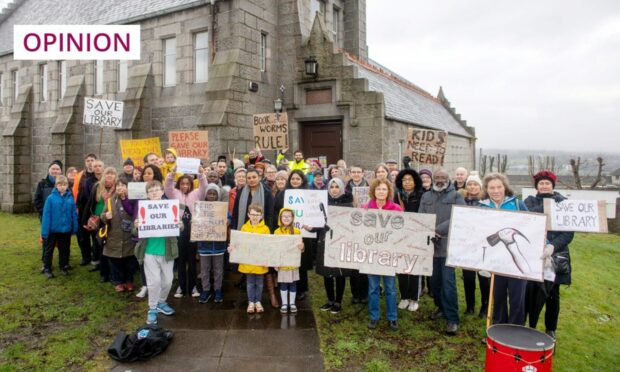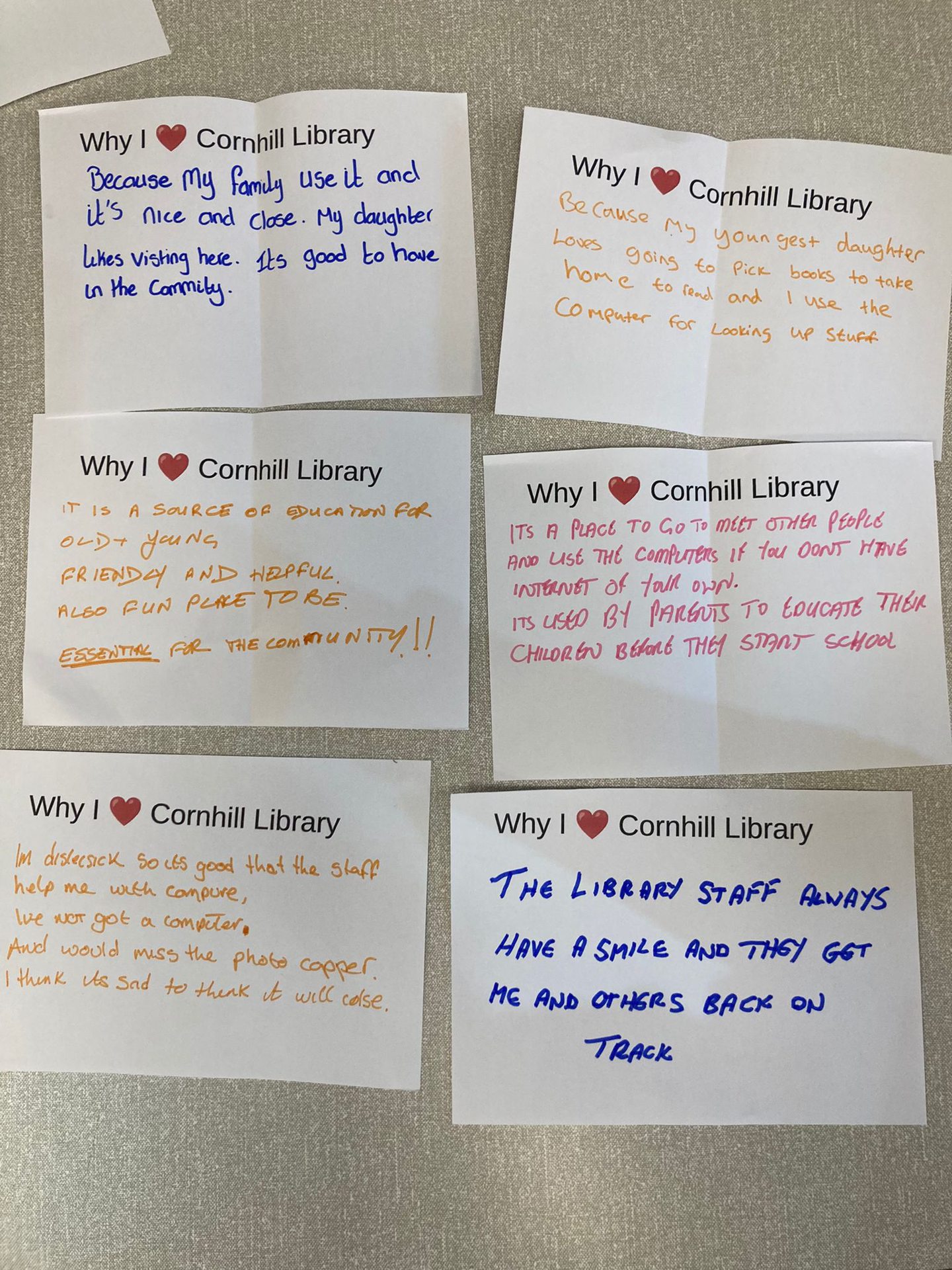A library is far more than just a ‘bricks and mortar’ house for books, yet those in charge don’t seem to realise it, writes Kirstin Innes.
In 2021, I wrote about the dangerous delay in reopening six of Aberdeen’s libraries after Covid closures. They were all eventually reopened, with the vital services they provided to their communities reinstated, albeit under limited hours.
This month – rather grotesquely, on the day before World Book Day, although I suspect those responsible failed to notice the significance – Aberdeen City Council announced that five of those six libraries (Cornhill, Cults, Ferryhill, Kaimhill and Northfield, plus Woodside Library), will close permanently at the end of March. Woodside Library, in another one of those grotesque ironies, is due to celebrate its 140th anniversary this year.
Council co-leader Iain Yuill’s utterly tone-deaf remarks made to The P&J when trying to explain the closures – including that “it’s not just about bricks and mortar” and that he accesses the library service “almost every day” on his iPad miss the point so widely that it’s terrifying. The people who need libraries the most, who need those bricks and mortar there and open, are not the iPad owners with the library app open, because they can’t afford iPads.
The message Councillor Yuill is sending, whether he realises it or not, is that he is only interested in, and possibly even capable of, being a councillor for people like himself. People with digital devices and the money to keep them charged and online, with no need of a warm safe space that isn’t their house.

Unfortunately, however, as the cost-of-living crisis drags more and more of us down with it, people like Councillor Yuill are on the decline. This is something his colleagues at Aberdeen City Council are apparently aware of, because they recently launched a “Warm Spaces” campaign, making sure people who can’t afford to heat their houses are able to access warm, safe places within their local communities. Great initiative: shame they’re closing six of them.
As the Twitter account of the Save Aberdeen Libraries campaign points out, if you’re on social media, it’s possible you might be unaffected by library closures. The people who they will affect the most – the elderly, children, people struggling financially, people on the margins of a modern, digitised society – are those who don’t have the sort of public voice necessary to get councillors to listen.
‘Libraries can save lives’
“Woodside is the most deprived area in Aberdeen,” says resident Emily Utter, who is involved in the campaign to preserve the historic Woodside Library, and who spoke at the demonstration there against the closure on Saturday.
“It was one of the areas worst-affected by Covid in Scotland, the worst-affected in Aberdeen. There’s a lot of substance use here,” she explains.
“The library and the Fersands and Fountain Community Centre [run by a charity, not the council] are now the only warm public spaces people here have access to. Billy Connolly said that having access to a library when he was growing up did so much more than just make his life better – it saved his life. And that’s so true, especially with reference to a community like Woodside.
“I’m lucky – I can afford to buy books if I need them, but there are a lot of people around me who can’t, and I think, at this point, those of us who have need to stand up and fight for those who don’t. Because, whatever the library might mean to me, I know it means so much more to other people who live here.
“The library closures across the city are a kick in the teeth for the people who live in these satellite communities, especially for people who are now expected to go without, to pay for bus fare to get into the centre of Aberdeen, or who don’t have the mobility to do that at all. It’s a 40 minute walk to Central Library in the city centre; longer on the way back, as it’s uphill. It’s really sidelined a lot of local citizens.”
Yesterday I had an appointment in @SilvercityLibs Local Studies, as part of the ongoing @SaveAberdeenLibs campaign to fight the closure of our cherished 140yo Woodside Library. https://t.co/52uqUdnE2h
I’ve got a few deep-dive discoveries to report… 1/ 🧵 pic.twitter.com/eJRa4M4STS— Hayden Lorimer (@Slipshodspeller) March 21, 2023
A library is more than just a “bricks and mortar” house for books. It’s an unmonetised, warm, indoor public space which encourages anyone, regardless of income or education level, to come in and spend time reading, thinking and dreaming, accessing the internet or newspapers they couldn’t otherwise afford. (People who can’t afford to buy this paper or read the paywalled articles, for instance, may access it in a library.)
Libraries are lifelines; shutting them down saves relatively little of a council’s annual budget (Woodside Library, for instance, costs only £32,000 per year to run, and catered to 5,000 visitors in the last year, over only three open days a week) but closes off essential avenues to the people who need them most.
- There will be a protest against Aberdeen library closures outside Cornhill Library this Saturday (March 25) at 12pm, followed by one outside Marischal College at 2:30pm on the same day.
Kirstin Innes is the author of the novels Scabby Queen and Fishnet, and co-author of non-fiction book Brickwork: A Biography of the Arches












Conversation